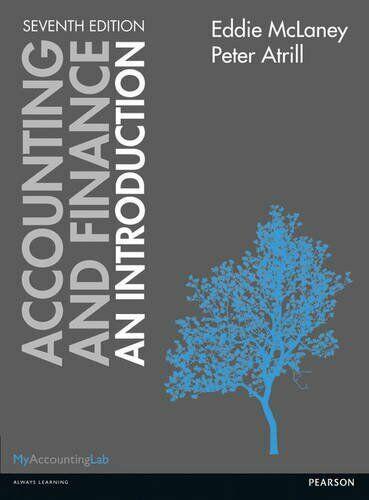
Waterways Continuing Problem (This is a continuation of the Waterways Problem from Chapters 1 through 6.) WCP.7 Phil Clark Jr., president of Waterways, was very pleased with how adopting a CVP approach to reporting operating income was helping management to make good business decisions with respect to planning, production, and sales for the coming year. He has a feeling that knowing how fixed and variable costs behave might also help them to find savings in the production department. Further, he is concerned that Waterways' production facility is working near full capacity right now, and he does not know if the company could generate enough new business to make adding another shift viable. Phil decides to sit down with his brother Ben, vice-president of operations, and Ryan Smith, the plant manager, to see if they could do more with less," as he put it. Jordan Leigh, CFO, had recently presented them with a number of situations that required decisions that would impact operations in the plant. Phil thought that together the four of them could find some efficient solutions. Part 1 Waterways packages some of its products into sets for do-it-yourself (DIY) installations. The smaller set that sells for $159 has variable costs of $79, while the larger set sells for $249 with variable costs of $159. Fixed costs are assigned at a rate of $6 per machine hour. It takes 32 minutes of machining time to produce and package the smaller set. The larger set is more complicated and requires 60 minutes of production time. The machines operate for two shifts of eight hours each day for 20 days per month. Maintenance and set-ups are handled outside of these times. Analysis of the current market trends reveals that monthly demand for the smaller set would not exceed 500 units, while Waterways could sell as many of the larger ones as it can produce. Instructions Given the information above, determine the best use of these machines. Part 2 As we learned in Chapter 6, Waterways markets a simple water controller and timer that it mass-produces. During 2022, the company sold 350,000 units at an average selling price of $8 per unit. The variable costs were $1,575,000, and the fixed costs were $800,000. Waterways has determined the full cost to manufacture its timers is $6.79 per unit. Recently it was discovered that a competitor was selling this unit for $6.58 per unit. Ryan immediately suggested that Waterways buy the timer from the other supplier, but Jordan was not convinced. He cautioned Ryan that $77,120 worth of fixed costs would not be eliminated by buying the unit. However, he also knew that, if Waterways bought the unit from the competitor, it would free up 120 machine hours that could be used to produce the large DIY installation kits described in Part 1. Instructions a. Assuming Waterways requires 350,000 timers, evaluate whether it should continue to make the timer or if it should purchase it from the outside supplier. b. What is the maximum price per unit Waterways should be willing to pay to purchase the timer from an outside supplier? c. What non-financial factors might be considered in making this decision







